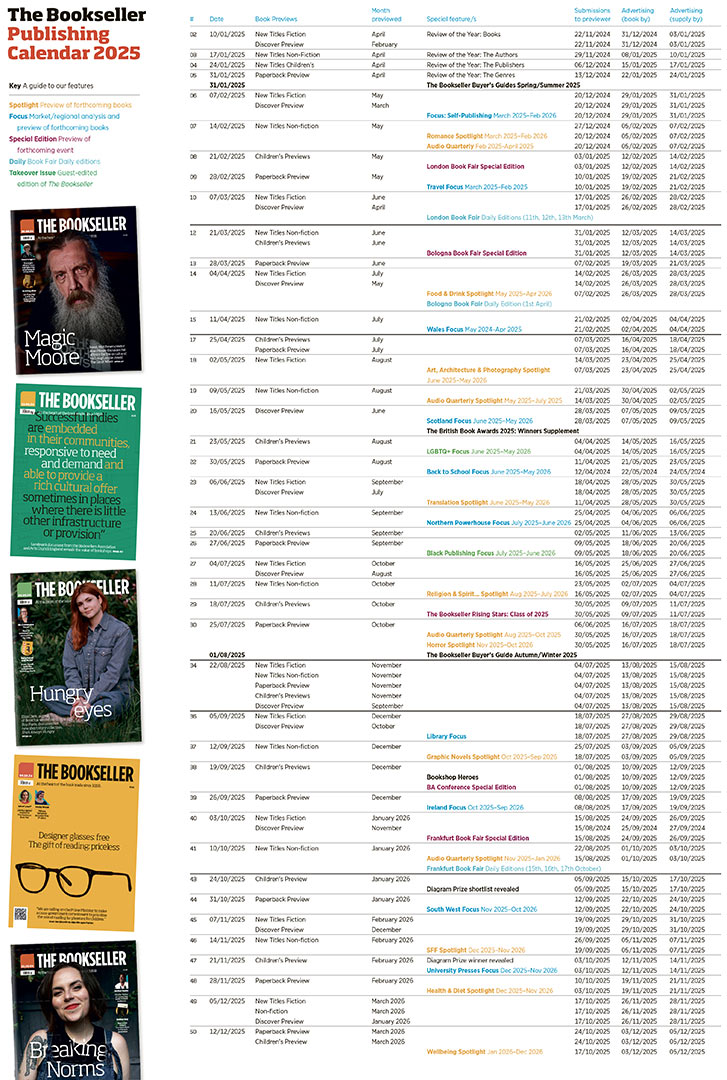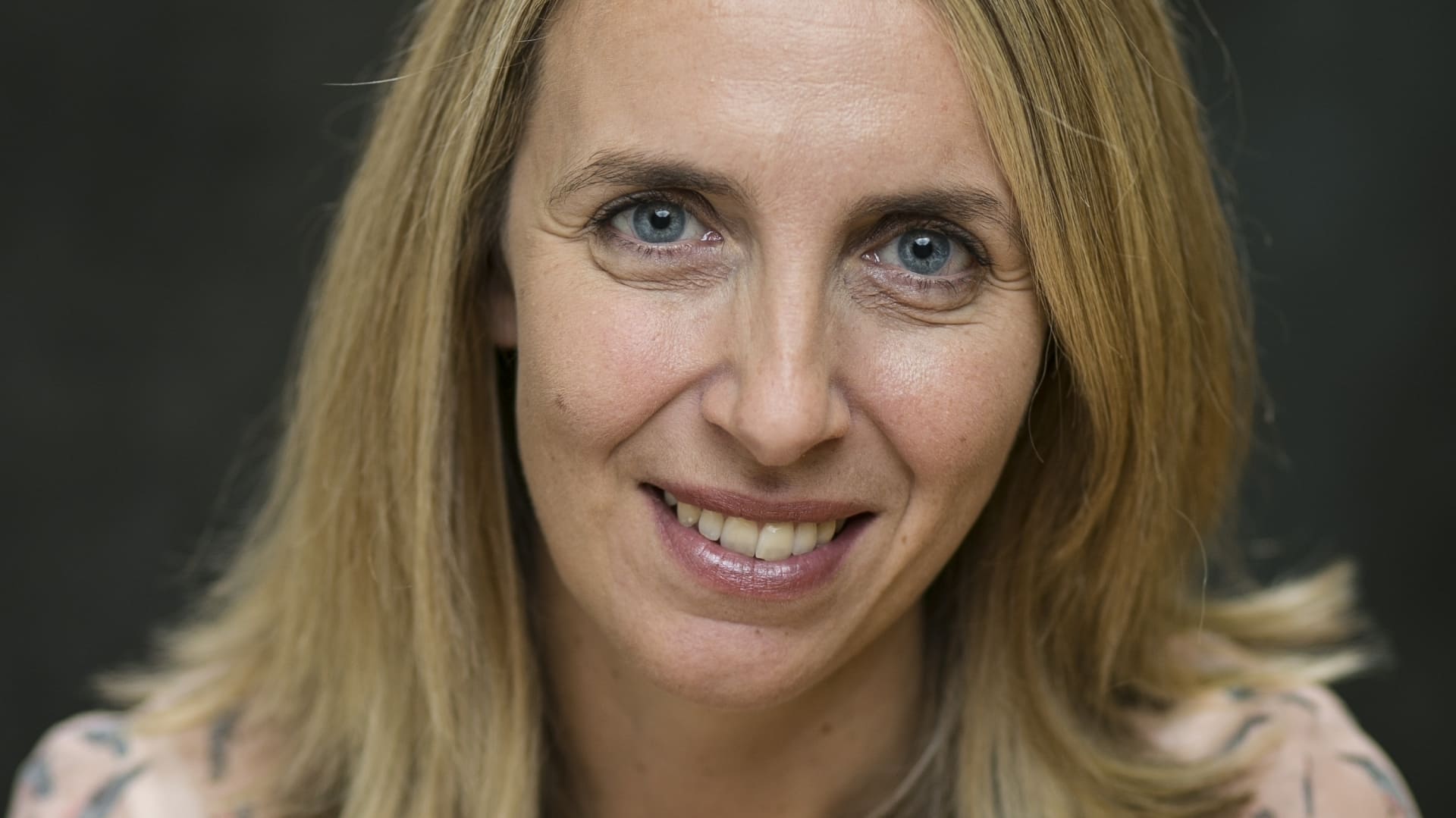You are viewing your 1 free article this month. Login to read more articles.
Ramsey seeks to sculpt post-pandemic plan for Edinburgh after ‘whirlwind’ time
After 26 years at Edinburgh University Press, Nicola Ramsey was named its interim c.e.o. five months ago, and has wasted no time looking to the future.
Nicola Ramsey has just returned from the IPG’s Autumn Conference in London when she speaks to me, marking the first time she has travelled for work for 20 months. It is one of many firsts Ramsey has encountered during the “whirlwind” of the past five months, when she was named interim c.e.o. of Edinburgh University Press (EUP) following her predecessor Timothy Wright’s retirement.
 Despite the new role, Ramsey is far from new to the organisation. She has worked at the press for more than 26 years and was head of editorial (books) for nine of those, leading the growth of its book publishing before stepping up to the top job. She says: “It’s strange because I’ve been at EUP for forever, so in a lot of ways it’s all quite familiar. But in other ways, it’s completely brand new.”
Despite the new role, Ramsey is far from new to the organisation. She has worked at the press for more than 26 years and was head of editorial (books) for nine of those, leading the growth of its book publishing before stepping up to the top job. She says: “It’s strange because I’ve been at EUP for forever, so in a lot of ways it’s all quite familiar. But in other ways, it’s completely brand new.”
Given her long service at the company, she anticipated that colleagues might be “a bit suspicious, quite rightly” about how much change she will drive in her new position, and she has been “conscious of wanting to be really clear about the things that I want to do differently”. She believes that her message is “getting through” and that “people were ready for change and were welcoming it”.
Reflecting on how the press has dealt with the impact of Covid-19, she says the company “feared the absolute worst” from a financial perspective at the start of the pandemic, but “then it turned out to be kind of OK”. She expands: “The beginning was obviously very, very difficult and we saw sales really plummet, but then they picked back up.”
EUP has digitised its backlist over the past few years, so it was able to accommodate the significant shift in demand from print books to e-books, with sales holding up overall. Ramsey notes: “The growth in e-book [sales] from 2019 to 2020 was 49%, so it was a dramatic explosion. It was happening anyway, but it suddenly accelerated really rapidly. We’re now at a point where around 40% of our book revenue is e-book, with 60% print.” She adds that the lack of travel costs and other activities helped the business to make savings, and overall, EUP “came out of the year returning surplus where we had budgeted for a significant loss”.
Another unexpected upside of the pandemic has been that the move towards remote or hybrid working has “really opened up possibilities” for the press in terms of recruitment, with a recent hire living in London. She asserts: “I think employers have got to really learn to adapt and to be flexible if they want to get the best people.” However, despite the positives to have come out of the past 18 months, she acknowledges that it has been “really hard” in terms of the impact on the morale and mental health of her 40 members of staff. She says: “I’m really conscious of the fact that there is some fragility there and I think we have to bear that in mind as we return to whatever normality looks like in the next year or so.”
Ramsey’s post will initially last for 18 months, with the assumption that it will be extended if all goes well. Given this, she has a clear set of objectives which are focused on building the business plan for the next three years. She is taking this time to “think exactly about what we might do differently”, expanding: “We’re talking a lot about community, collaboration and communication, and how that might drive creativity. We’re really strongly emphasising the importance of being outward-looking.”
As such, the press is “thinking a lot more about partnerships”. This summer, it inked a deal with journal Studies in Photography, which is produced by the Scottish Society for the History of Photography, to co-publish a collection of books, and it has plans to work more closely with the University of Edinburgh.
Reaching out
Recently, EUP signed an international distribution agreement with De Gruyter Publishing, becoming the first press outside North America to join its Publisher Partner Programme. Ramsey says: “I love [De Gruyter’s] focus on partnership and collaboration, it really links with how I want to develop and grow EUP. I like the way they’re selling these collections so it’s a focus on the publisher—it’s really great for our brand and our profile. We don’t have our own platform, so it means that our e-books go into all the other big aggregators, but a lot of the time they’re just mixed in with other publishers’ books. It’s really nice for us to have our own distinct profile there.”
Under Ramsey’s new strategy, EUP has created a number of different working groups across areas including digital strategy; sustainability; core values; and equality, diversity and inclusion. The latter group has been tasked with looking at where the press can “make a practical difference”, initially focusing on recruitment and induction policies and procedures. Ramsey says: “We have really gone back to the drawing board on that and are thinking about different ways in which we can try to reach a wider constituency. An internship, we think, is the next step, but then taking a step back from that, we’re also thinking about how we engage with people who are still at school.”
It is also considering increasing inclusivity in terms of its author base, reviewer base and press committee. Ramsey says the aim is that “at every level, we are thinking about how to benefit from as wide a range of viewpoints as possible”.











